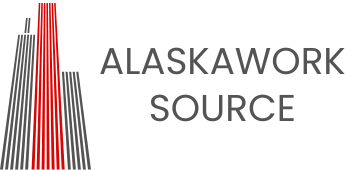Buying a home can feel like trying to solve a Rubik’s Cube blindfolded. The excitement of finding the perfect place is often overshadowed by the daunting task of figuring out how to come up with that hefty down payment. Enter the FHA loan—a superhero in the world of home financing that swoops in to save the day with its low down payment requirements.
Table of Contents
ToggleUnderstanding FHA Loans
FHA loans provide a practical option for homebuyers facing down payment challenges. These loans, insured by the Federal Housing Administration, cater to a range of buyers, particularly those with limited financial resources.
What Are FHA Loans?
FHA loans refer to mortgages backed by the Federal Housing Administration. Hefty down payments deter many buyers, but FHA loans require as little as 3.5% down. This makes homeownership more accessible to individuals with lower credit scores. Loan amounts vary by region, accommodating different market conditions and living costs. Monthly mortgage insurance premiums cover the government’s insurance against borrower default, contributing to overall loan costs.
Benefits of FHA Loans
FHA loans offer several advantages for prospective homebuyers. Lower down payment requirements promote homeownership among first-time buyers. Flexible credit score guidelines increase approval chances for various applicants. Competitive interest rates attract buyers seeking affordable mortgage options. These loans also permit the inclusion of down payment gifts from family members, enhancing affordability further. Additionally, the streamlined refinancing process allows homeowners to take advantage of lower rates in the future.
FHA Loan Down Payment Requirements

FHA loans present flexible options for homebuyers regarding down payment requirements. Understanding these requirements can simplify the home-buying process.
Minimum Down Payment Percentage
FHA loans require a minimum down payment of 3.5% for borrowers with credit scores of 580 or higher. Those with scores between 500 and 579 face a higher requirement of 10%. Buyers can finance closing costs, which further reduces upfront expenses. This flexibility in down payment percentage opens doors for many individuals and families interested in homeownership.
Types of Acceptable Sources for Down Payment
Borrowers can utilize various sources for their FHA loan down payments. Personal savings accounts contribute significantly, while gifts from family members can also count. Grants from government programs or non-profit organizations help lower costs. Additionally, employer assistance programs can provide needed funds. Each source must be documented to comply with FHA guidelines, ensuring transparency during the loan process.
FHA Loan Down Payment Tips
FHA loans offer accessible pathways for homeownership through manageable down payment options. Here are essential tips for potential buyers.
Saving for Your Down Payment
Start saving early to build the down payment. Setting aside a specific amount each month, even small sums, can accumulate quickly. Consider opening a dedicated savings account to track progress. Creating a budget that prioritizes saving helps maintain focus. Monitor expenses to identify possible adjustments, freeing up more funds. Utilizing automatic transfers to the savings account fosters a consistent savings habit.
Exploring Down Payment Assistance Programs
Investigate local and state down payment assistance programs. Many government and non-profit organizations provide grants or no-interest loans to help cover down payments. Research varies by location, so look for tailored solutions in your area. Meeting specific eligibility criteria often unlocks potential benefits. Application processes might include documentation of income and financial history. Programs can significantly reduce the financial burden and enhance affordability for homebuyers.
Using Gift Funds for Down Payment
Consider accepting gift funds from family members to supplement the down payment. Gift funds allow buyers to reach the required 3.5% minimum quickly. Ensure the donor provides a gift letter, confirming no expectation of repayment. Many lenders require documentation proving the source of funds. Communicating openly with family members about financial contributions helps avoid misunderstandings. Utilizing these gifts can make homeownership within reach for aspiring buyers.
Common Mistakes to Avoid
Homebuyers often face common pitfalls when seeking FHA loans. Awareness of these mistakes can lead to smarter financial decisions.
Underestimating Total Costs
Many homebuyers overlook expenses beyond the down payment. In addition to the 3.5% needed, closing costs may range from 2% to 5% of the home’s price. Property taxes, homeowners insurance, and potential repairs can add to this figure. Buyers must budget for these recurring costs. A thorough financial plan can prevent unexpected financial strain. Documenting all anticipated expenses early ensures no surprises arise later.
Ignoring the Long-Term Impact
Homebuyers frequently concentrate solely on immediate financial requirements. Over time, an FHA loan can lead to significant interest paid over the loan’s lifespan. Accepting the higher insurance premiums associated with FHA loans may also impact monthly budgets. It’s essential to consider future financial goals and monitor potential changes in personal circumstances. Evaluating the long-term implications of an FHA loan supports informed decision-making. Prioritizing sustainability in financial planning helps maintain stability throughout homeownership.
Navigating the journey to homeownership can be daunting but understanding FHA loans and their down payment options can make it more manageable. By leveraging the low down payment requirements and flexible financing solutions, prospective buyers can find a path to owning a home that suits their financial situation.
It’s essential to explore all available resources such as down payment assistance programs and family gifts while maintaining a clear budget. Avoiding common pitfalls and planning for both immediate and long-term costs will lead to a more successful home buying experience. With the right preparation and knowledge, achieving homeownership is within reach.




